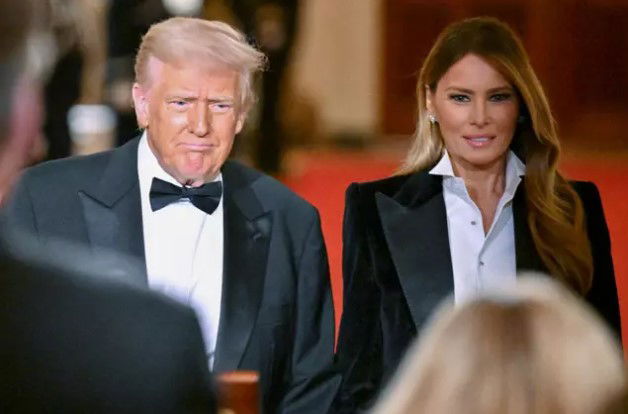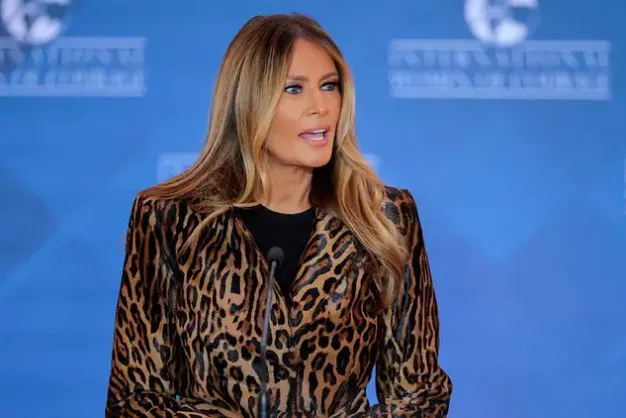Melania Trump Discusses ‘The Power of Love’ in Solo Appearance
Melania Trump recently made a solo appearance, speaking at the State Department’s International Women of Courage Awards on April 1st. The event honors women who demonstrate exceptional courage, strength, and leadership, often at great personal risk, in advocating for peace, justice, human rights, and the empowerment of women and girls. Melania, 54, took this opportunity to reflect on how she draws strength from love during challenging times.
Melania’s Message of Strength and Love
In her speech, Melania shared how love has been a guiding force in her life, helping her navigate difficult situations. “Throughout my life, I have harnessed the power of love as a source of strength during challenging times. Love has inspired me to embrace forgiveness, nurture empathy, and exhibit bravery in the face of unforeseen obstacles,” she explained.
She continued, highlighting that the women receiving awards were from various backgrounds, but love is what unites them. “Love transcends boundaries and territories,” she said, adding that their courage is essential for advancing humanity by fighting for the rights of women and girls, promoting democracy, and challenging injustice.
Courage and Love as Catalysts for Change
Melania emphasized that while courage pushes us forward, it is love that creates a lasting impact. “Each act of love can spark a ripple of transformation,” she said, acknowledging that the awardees’ efforts have been instrumental in pushing for change across the world.
Melania’s Role as First Lady
Secretary of State Marco Rubio also addressed the importance of protecting women and girls and promoting their well-being as a key goal of the United States, something President Trump strongly supports.
Despite Melania’s significant presence at the awards, a source close to her shared that she would not follow the traditional First Lady role. “That isn’t who she is,” the source said, suggesting that her decision to step back from public appearances isn’t surprising. They added that Melania has her vision of what she wants to do.

Melania’s Upcoming Documentary
Earlier this year, it was revealed that Melania Trump had signed a documentary deal with Amazon. The project will tell the story of her life, from her childhood in Slovenia to her career in modeling and her marriage to Donald Trump.
The documentary, which is being filmed in 2024 and expected to be released in the latter half of 2025, will feature Melania as an executive producer, with Fernando Sulichin and Brett Ratner as producers and directors. An Amazon spokesperson confirmed that more details about the documentary will be shared as production progresses.
“We are excited to share this truly unique story with our millions of customers around the world,” the spokesperson added.










